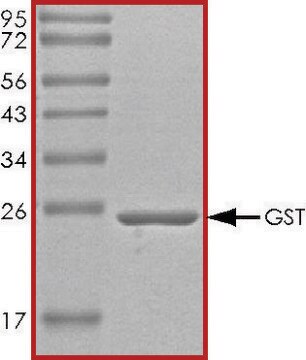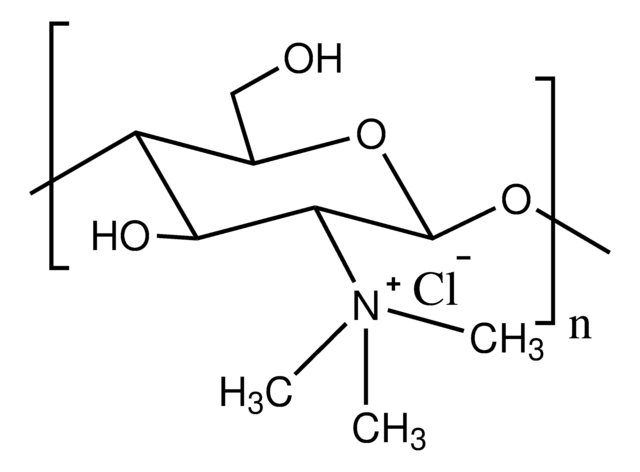Wichtige Dokumente
GS64
GST A4-4, Recombinant Human
Synonym(e):
GTA4, glutathione S-transferase alpha 4
About This Item
Empfohlene Produkte
Biologische Quelle
human
Qualitätsniveau
Rekombinant
expressed in E. coli
Assay
>95% (SDS-PAGE)
Form
frozen liquid
Spezifische Aktivität
3.68 units/mg protein
Mol-Gew.
25 kDa
Konzentration
1.01 mg/mL
Lagertemp.
−70°C
Angaben zum Gen
human ... GSTA4(2941)
Allgemeine Beschreibung
Biochem./physiol. Wirkung
Lagerung und Haltbarkeit
Lagerklassenschlüssel
10 - Combustible liquids
WGK
WGK 1
Flammpunkt (°F)
Not applicable
Flammpunkt (°C)
Not applicable
Hier finden Sie alle aktuellen Versionen:
Analysenzertifikate (COA)
Die passende Version wird nicht angezeigt?
Wenn Sie eine bestimmte Version benötigen, können Sie anhand der Lot- oder Chargennummer nach einem spezifischen Zertifikat suchen.
Besitzen Sie dieses Produkt bereits?
In der Dokumentenbibliothek finden Sie die Dokumentation zu den Produkten, die Sie kürzlich erworben haben.
Unser Team von Wissenschaftlern verfügt über Erfahrung in allen Forschungsbereichen einschließlich Life Science, Materialwissenschaften, chemischer Synthese, Chromatographie, Analytik und vielen mehr..
Setzen Sie sich mit dem technischen Dienst in Verbindung.







